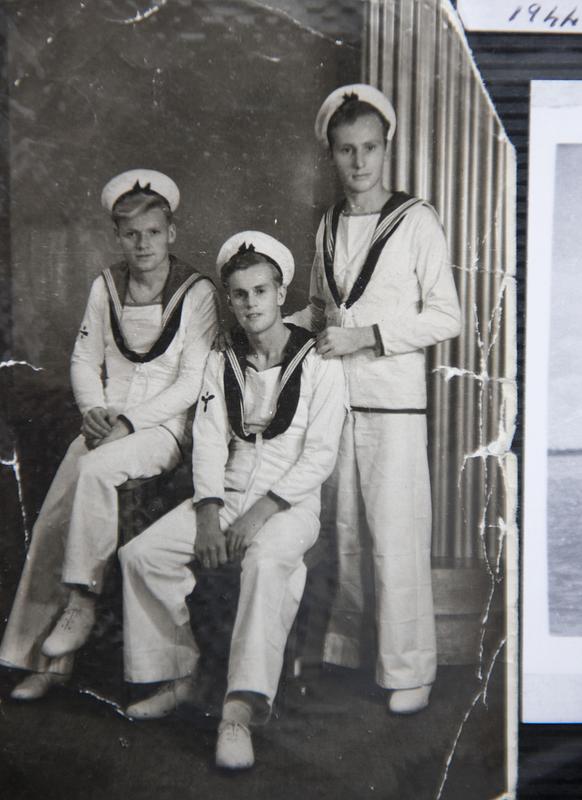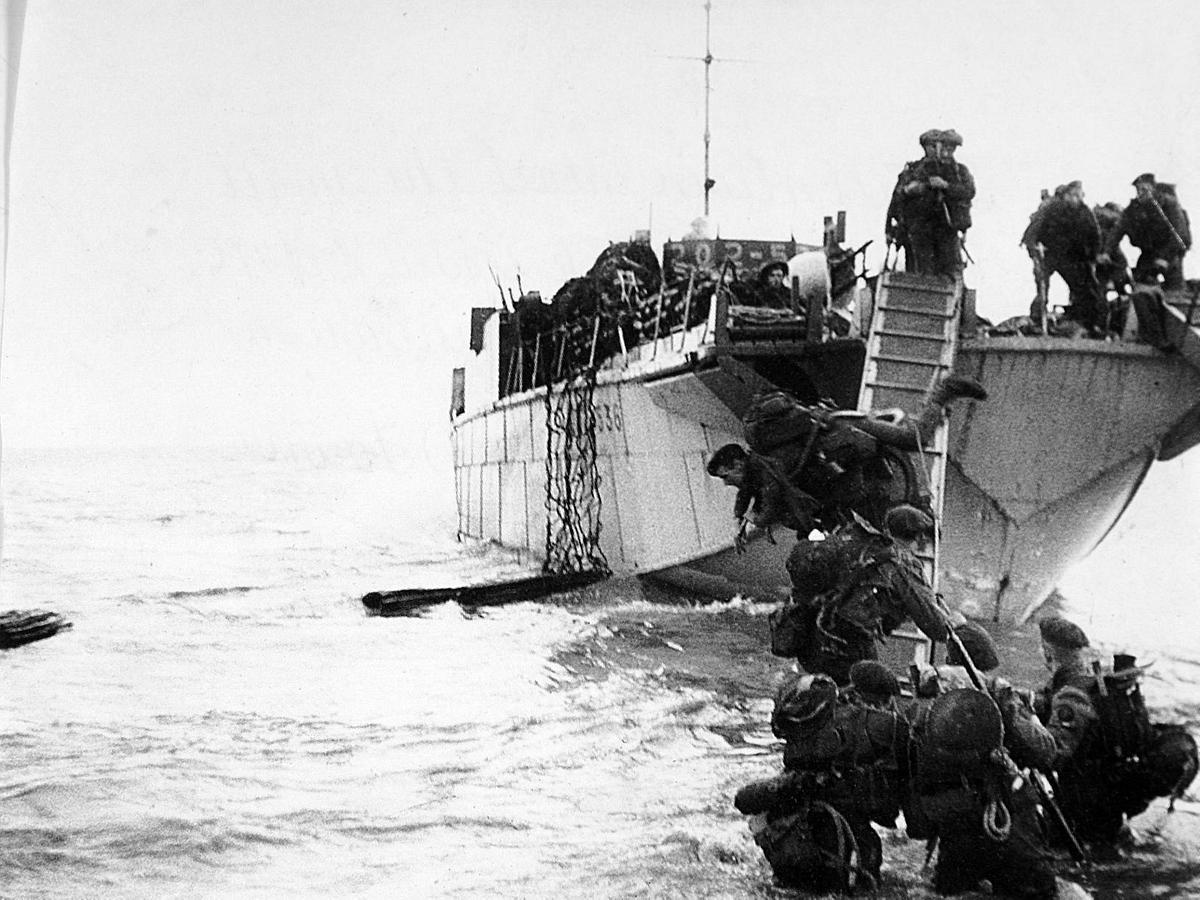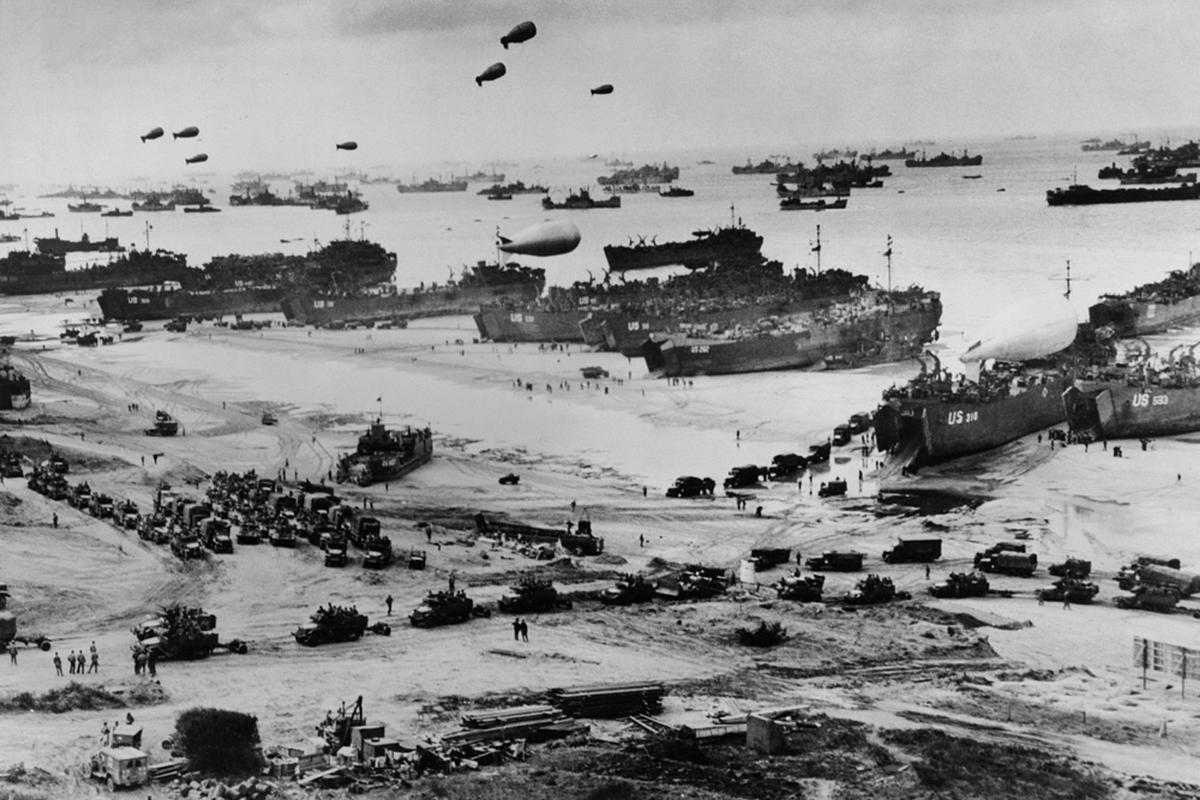
Six Scottish veterans are making a poignant pilgrimage to the beaches of Normandy as part of the commemoration to mark the 75th anniversary of D-Day, writes Shan Ross.
To honour the milestone, Legion Scotland and Poppyscotland have commissioned a series of stunning portraits of these brave veterans to highlight their remarkable stories of that fateful day on 6 June, 1944.
The veterans were photographed by Wattie Cheung on a Graflex Super D large format film camera made in the US in the 1940s.
D-Day, codenamed Operation Overlord, the largest seaborne invasion in history that involved a naval, air and land assault by the Allies, was the beginning of the campaign to liberate German-occupied France from the Nazis.
The Scots – Ian Ritchie Forsyth, 95, from Hamilton, South Lanarkshire; James Churm, 94, from Castle Douglas, Dumfries and Galloway; James “Jim” Glennie, 93, from Aberdeen; Denis Gregson, 94, from North Lanarkshire; John McOwan, 98, from Peebles in the Scottish Borders and Charles Horne, 93, from Port Seton, East Lothian – will be part of a group of 300 D-Day veterans travelling to Bayeux in France exactly 75 years to the day since the landings.
Legion Scotland, Poppyscotland and the Royal British Legion have chartered the cruise ship MV Boudicca.
After setting sail from Dover on Sunday, the veterans will take centre stage at national commemorative events in Portsmouth on Wednesday before retracing their famous journey across the Channel on Thursday.
Sergeant McOwan, was an instrument mechanic who served in the Royal Electrical and Mechanical Engineers attached to the 8th Army.
Recalling the eventful day, he said: “My most vivid memory was the armada of ships lying off-shore.
“They stretched for as far as the eye could see. We waited for what seemed like an interminable amount of time before we could go on shore.
“We felt like easy targets for the Luftwaffe.
“A couple of ships were hit and we just hoped and prayed that ours would not be one of the next ones.
“For some reason, I remember that I did not even get my feet wet when we eventually came on shore as we were on landing craft vehicles.”
Mr Churm, who served as a Royal Navy medic on landing craft, moving tanks from Newhaven to Sword Beach on D-Day, said his main memory was the fear of not knowing what was about to happen.
“My overriding feeling was one of terrible trepidation,” he said.
“Nobody knew what was happening until we got there. The amount of shipping in the Channel was fantastic though. Every type of vessel you could think of was there.”
Dr Claire Armstrong, chief executive of Legion Scotland, said it would be a great privilege to accompany the men.
“D-Day was a pivotal moment in the Second World War,” she said. “The remarkable stories of these Scottish veterans provide us with an important reminder of both the bravery and tragedy which surrounds that day.
“Legion Scotland is committed to providing comradeship for those in the armed forces community and to ensuring the memory of those who fell in service to our country is remembered forever.
“It will be an honour and a privilege to host these incredible gentlemen and to recognise the immense contribution of an entire generation.”
Ian Ritchie Forsyth
(Sergeant) Ian Ritchie Forsyth, 95 (DOB 23/12/1923), from Hamilton, in South Lanarkshire, was a Driver Operator working on reconnaissance for armoured division.
He recalls: “When I first went abroad I, like a lot of others of my age group, thought they were going to change the world; that is what we were going to fight for.
"Unfortunately, that quickly changed to fighting for our own survival, and that was difficult enough, until we arrived at the gates of Belsen.
"That woke us up to realise the depths to which a man can sink, and why we were really there.
"My memory tells me that of the 20 men that made up our troop, only three remained physically unmarked, but mentally scarred for the rest of their lives.
"There is so much I would like to say about the changes that took place in us, but that would require a few pages and not just a few lines.”
After the War, Mr Forsyth became a teacher.
James Churm
(Royal Navy Medic) James Churm, 94 (DOB 20/08/1924), from Castle Douglas, in Dumfries and Galloway, served as a medic on landing craft, moving tanks from Newhaven to Sword Beach on D-Day.
Mr Churm recalls: “My overriding feeling was one of terrible trepidation.
"Nobody knew what was happening until we got there.
"The amount of shipping in the Channel was fantastic, though; every type of vessel you could think of was there.”
After the War, Mr Churm became a physiotherapist, including a stint as the physio at Blackburn Rovers.
James ‘Jim’ Glennie
(Private) James ‘Jim’ Glennie, 93 (DOB 19/08/1925), and living in Aberdeen, landed at Sword Beach in the 51st Highland Division of the Gordon Highlanders.
He was shot, wounded and captured not long after and spent the rest of the War in POW camp Stalag 4b.
Mr Glennie, who still volunteers as a greeter at the Gordon Highlanders Museum, in Aberdeen, has the following poignant words printed on the wall in the building:
“Every soldier had a spade that was part your pack.
"They say your rifle is your best friend, but I replied that my shovel is my best friend.”
And as his time as a prisoner of war, Mr Glennie recalls:
“The overriding thing I remember from being a prisoner of war was the lack of food.
"We had to steal potato skins from the guards’ bin. It amazes me now when I am out for dinner with my family and they order potato skins!”
Denis Gregson
(Marine) Denis Gregson, 94 (DOB 26/02/1925), from North Lanarkshire, spent more than three months in France during the conflict.
He said: “We were just doing a job and we did what we got told to do.
"We didn’t see ourselves as heroes.
"I always wonder what the French people thought that morning when they woke up and saw all of the ships.”
After the War, Mr Gregson became a cooper.
John McOwan
(Sergeant) John McOwan, 98 (DOB 06/02/1921), from Peebles, was an instrument mechanic servicing repairs as required.
Mr McOwan, who served in the Royal Electrical and Mechanical engineers attached to the 8th Army, recalls:
“My most vivid memory was the Armada of ships lying off-shore.
"They stretched for as far as the eye could see.
"We waited for what seemed like an interminable amount of time before we could go on shore.
"We felt like easy targets for the Luftwaffe.
"A couple of ships were hit, and we just hoped and prayed that ours would not be one of the next ones.
"For some reason, I remember that I did not even get my feet wet when we eventually came on shore as we were on landing craft vehicles.”
Charles Horne
(Stoker) Charles Horne, 93 (DOB 26/11/1925), from Port Seton, in East Lothian, served on board a minesweeper alongside American forces.
He said: “We were the first Allied vessels to arrive, before the D-Day landings. We got some cover from the American warships firing over our heads towards the German placements.
"The noise was deafening. After it started, the shelling went on day and night and we never got any sleep.
"That said, I suppose it didn’t help that I didn’t have a real bed and had to sleep on a seat!
"I later heard that 2,000 men were killed on Omaha Beach that morning, so, I do feel lucky that I was one of the ones that came home.
"During the operation, a minesweeper the same as ours was hit and sank in five minutes.”
After the War, Mr Horne returned to life as a fisherman.


